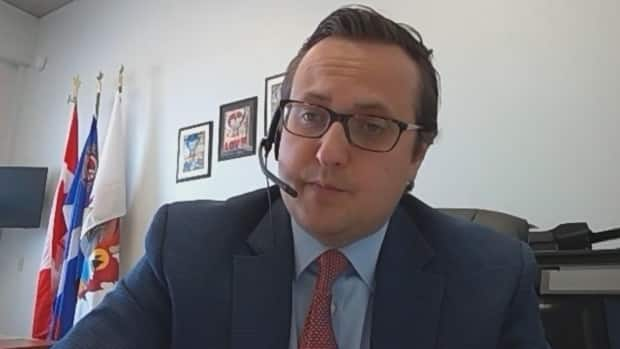'No one knows who's in charge:' Poor quarantine coordination puts migrant worker health at risk
Local municipal leaders have yet to hear back from the provincial or federal government over concerns about a lack of oversight as thousands of migrant workers continue to enter the region.
Leamington mayor Hilda MacDonald told CBC Radio's Windsor Morning host Tony Doucette Tuesday the problem is everyone is pointing fingers, but no one is taking responsibility.
She said the uncertainty is frustrating and is putting the workers and community at risk.
"We have asked ministry of labour, we have asked other agencies and they say well it's the local police, or it's the healthcare, it's public health, but when we talk to those folks they say no that's not in our jurisdiction.
"So no one knows who's in charge, there's no number to call when there's transgressions," she said.
MacDonald, along with the mayors of Kingsville and Tecumseh sent a letter to Prime Minister Justin Trudeau and Ontario Premier Doug Ford on Jan. 20 requesting more surveillance of migrant workers, who are arriving on local farms and are expected to follow the mandatory two-week quarantine.
They say inadequate coordination and communication have left local authorities uncertain as to who is responsible for overseeing the workers during their quarantine.
About 600 to 700 workers have already arrived, according to the County of Essex, with 2,000 more expected in the coming weeks.
In particular, MacDonald said she received a complaint from a community member about migrant workers leaving the motel during their quarantine period and having guests over. She said she didn't know who to take the complaint to, but brought it to the police.
Yet, she's still unsure whether the situation was handled.
Last year, COVID-19 spread quickly throughout the migrant worker population in southwestern Ontario, with hundreds contracting the illness. Two workers in Windsor-Essex died after falling sick.
As of Tuesday, 13 farms in the region are in outbreak.
MacDonald said it's the federal temporary foreign worker program that is allowing workers in, so the federal government should be looking after the workers, ensuring they are educated on the lockdown measures and that their accommodations are appropriate.
"That's a federal program, then you need to take charge," she said. "There's a lack of quick response, there should be quicker ... it is disappointing."
Communication, coordination gaps
But Liberal Windsor-Tecumseh MP Irek Kusmierczyk says oversight is being provided by several agencies.
He said that before workers arrive, farm owners need to provide an accommodation plan to Service Canada, one that details how they plan to quarantine employees and describes what accommodations look like, including photos.

If up to standard, the employer will be approved to accept the workers, he said.
But Kingsville mayor Nelson Santos told CBC News that the inspections of quarantine spaces are only being done virtually, which raises concerns about how effective they truly are.
When CBC News asked Kusmierczyk, it was unclear from his response whether in-person inspections of quarantine spaces have been conducted.
He said if a complaint is issued to the Ontario Provincial Police, a virtual or in-person inspection can be requested.
But he said in-person inspections of accommodations have been completed, yet he couldn't say how many have been done.
He added that workers also need to show proof of a COVID-19 test before coming to Canada and that the Public Health Agency of Canada will check in on them via phone or email to ensure they are quarantining once they arrive.
If there's violations to the quarantine, Kusmierczyk said that falls on the Ontario Provincial Police.
But both MacDonald and Santos have said that the OPP has not received any information about what migrant workers are coming into the area or where they are staying.
CBC News reached out to Essex County OPP and asked whether it responds to matters relating to the quarantine act and migrant workers. In response, the OPP sent a news release about enforcing the provincial stay-at-home order.
Kusmierczyk said there is a number of hands in the pot, from four different federal ministries, to the province's agriculture and labour ministries and the Ontario Provincial Police and then finally the local public health unit, fire department and building enforcement.
"This is an incredibly complex space, it does require collaboration and cooperation and we absolutely are committed to addressing any of the communication gaps between the different ministries," he said.
"I definitely think this is a really challenging space because of the multiple jurisdictions and agencies that are involved at the federal, provincial and local level."
But he said he has flagged the concerns up to the federal's ministry of public safety, the ministry of health and ministry of employment.
Yet, MacDonald said taking action is crucial and can help avoid the situation that unfolded last year.
"If we don't get a handle on it and if no one takes responsibility, we will be in this situation for months to come," MacDonald said.

